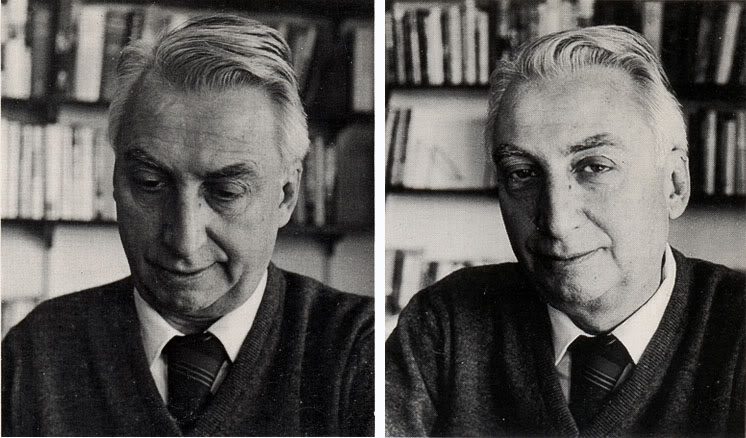The French literary critic and semiotician Roland Barthes signals the ‘death of the author’ and, likewise, all monolithic interpretations of texts.

The French literary critic and semiotician Roland Barthes signals the ‘death of the author’ and, likewise, all monolithic interpretations of texts.

Though the sway of the Author remains powerful (the new criticism has often done no more than consolidate it), it goes without saying that certain writers have long since attempted to loosen it. In France, Mallarme was doubtless the first to see and to foresee in its full extent the necessity to substitute language itself for the person who until then had been supposed to be its owner. For him, for us too, it is language which speaks, not the author; to write is, through a prerequisite impersonality (not at all to be confused with the castrating objectivity of the realist novelist), to reach that point where only language acts, ‘performs’, and not ‘me’. …
Once the Author is removed, the claim to decipher a text becomes quite futile. To give a text an Author is to impose a limit on that text, to furnish it with a final signified, to close the writing. Such a conception suits criticism very well, the latter then allotting itself the important task of discovering the Author (or its hypostases: society, history, psyche, liberty) beneath the work: when the Author has been found, the text is ‘explained’ – victory to the critic. Hence there is no surprise in the fact that, historically, the reign of the Author has also been that of the Critic, nor again in the fact that criticism (be it new) is today undermined along with the Author. In the multiplicity of writing, everything is to be disentangled, nothing deciphered; the structure can be followed, ‘run’ (like the thread of a stocking) at every point and at every level, but there is nothing beneath: the space of writing is to be ranged over, not pierced; writing ceaselessly posits meaning ceaselessly to evaporate it, carrying out a systematic exemption of meaning. …
Thus is revealed the total existence of writing: a text is made of multiple writings, drawn from many cultures and entering into mutual relations of dialogue, parody, contestation, but there is one place where this multiplicity is focused and that place is the reader, not, as was hitherto said, the author. The reader is the space on which all the quotations that make up a writing are inscribed without any of them being lost; a text’s unity lies not in its origin but in its destination. Yet this destination cannot any longer be personal: the reader is without history, biography, psychology; he is simply that someone who holds together in a single field all the traces by which the written text is constituted. Which is why it is derisory to condemn the new writing in the name of a humanism hypocritically turned champion of the reader’s rights. Classic criticism has never paid any attention to the reader; for it, the writer is the only person in literature. We are now beginning to let ourselves be fooled no longer by the arrogant antiphrastical recriminations of good society in favour of the very thing it sets aside, ignores, smothers, or destroys; we know that to give writing its future, it is necessary to overthrow the myth: the birth of the reader must be at the cost of the death of the Author.
Barthes, Roland. 1977. Image-Music-Text. New York: Hill and Wang. pp. 142-148. || Amazon || WorldCat